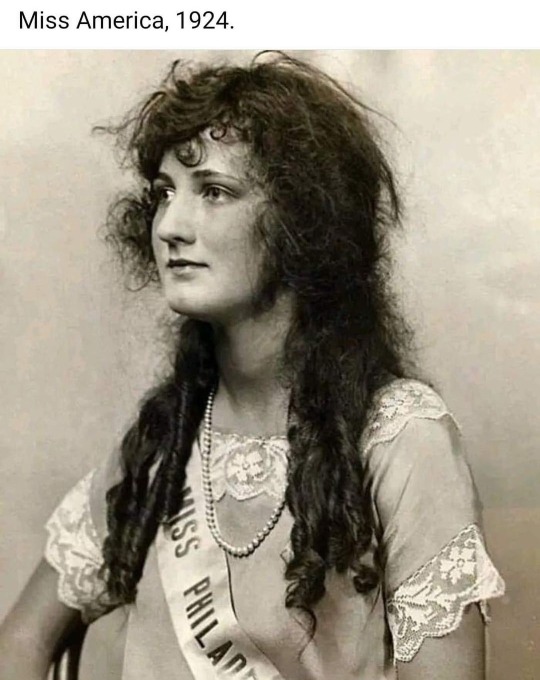#year: 1924
Text
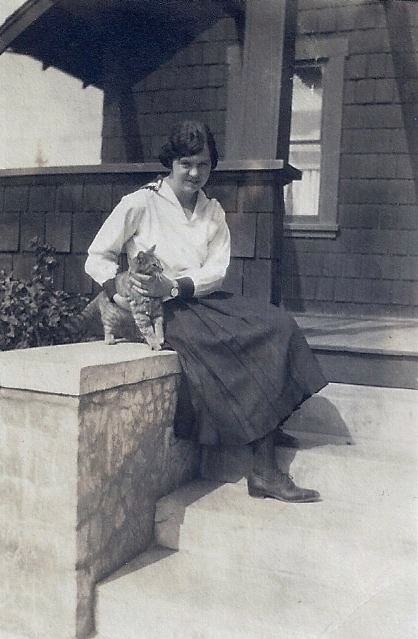
1924
#year: 1924#1924#decades: 1920s#1920s#1920s photography#1920s vintage#vintage lady#vintage cat#as they were#vintage snapshot#vintage photo#old photo#found photo#vintage style#yesterdays#the past#memory lane
98 notes
·
View notes
Photo

Screenland, May 1924
#alice terry#magazine: screenland#year: 1924#decade: 1920s#type: studio and publicity photos#photographer: alfred cheney johnson#sc vol. 9 no. 2
55 notes
·
View notes
Text
So basically I have 3 Duckverse timelines running through my brain simultaneously (Scrooge and his siblings keep their original birth years, it’s other family members and Donald’s generation that shifts from then on):
Timeline 1: Donald & Della are born around 1920 (ex: Don Rosa)
Timeline 2: Donald & Della are born around 1957 (ex: DuckTales 1987)
Timeline 3: Donald & Della are born around 1983 (ex: DuckTales 2017)
And then I mentally (because I almost never actually draw) make different designs for the characters based on the different time periods’ fashions because I’m normal
#ducktales#duckverse#disney ducks#ducktales 2017#ducktales 1987#duck comics#Don Rosa#donald duck#della duck#timeline#timelines#oddballsduckverse au#my au is closest to the first version#tho technically I have their birth year as 1924#the only reason for that is#I wanted Donald to be as young as possible when he went to fight in ww2#maximum trauma
55 notes
·
View notes
Text

View of leaping kangaroo. Handwritten on sleeve: "Kangaroo, Australia, 1924."
Aloha Baker collection
National Automotive History Collection, Detroit Public Library
#kangaroo#leap#leap year#kangaroos#animals#1924#australia#aloha baker#leaping#detroit public library
45 notes
·
View notes
Text
"Grandpa Marsh, the only one old enough to have *seen* the civil war... re-enactment of 1924"
"Wow, your grandpa *still* isn't dead?"
That line hits different with each passing year
8 notes
·
View notes
Text
you havent had to stare at 1924 clothing patterns and catalogs like i have
#yes it matters if it was 1924 or 1925 bc there was a huge difference in fashion between those years
9 notes
·
View notes
Text
Booze, Jazz, Flivvers And Flappers Dominated Cincinnati’s New Year In 1924
One hundred years ago, it was easy, despite three solid years of Prohibition, to get a celebratory drink on New Year’s Eve in Cincinnati. The new year began with multiple fatal accidents, many blamed on liquor. The Enquirer [1 January 1924] wryly observed that venerable customs were honored only when thirst compelled:
“The fashion of making New-Year’s calls has gone out of style EXCEPT in those homes where they still have well-stocked cellars.”
Reporters from Cincinnati’s newspapers rang up the doctors at General Hospital to get a status report on the city’s accommodation to a nominally “dry” existence. Doctor Arthur Charles Bachmeyer, superintendent of the city’s hospital, did not disappoint. According to the Enquirer [1 January 1924]:
“Whisky, good or bad, pre-war or bootleg stuff, did not affect as many persons, visibly, during the year 1923, as were affected by it in 1922, according to records at the General Hospital, which show that there were but 61 cases of acute alcoholism treated there last year, as against 188 in 1922. However, Dr. A.C. Bachmeyer, Superintendent of the hospital, declared it to be his belief that alcohol and its use played a much more important role with regards to automobile accidents in 1923, than in the preceding year, and more persons examined after being injured in accidents, or after having injured others through reckless driving, showed symptoms of being under the influence of alcohol, than in previous years, according to reports made to Dr. Bachmeyer.”
If anything put a damper on New Year’s Eve celebrations a century ago, it wasn’t a dearth of booze. It was the weather. New Year's Eve 1923 was unseasonably frigid, with temperatures coasting around zero degrees.

Cincinnati, along with most of America, was still trying to accept the changes that automobiles were bringing into daily life. With all the complaints about scofflaws guzzling Sweet Lucy and bathtub gin, the Enquirer noted:
“Automobiles killed the most people. Bootleg whisky came next in deadliness. Ordinary diseases ran a poor third.”
The Enquirer noted that, across America in 1923, one million homeowners had taken on a mortgage to finance the purchase of an automobile.
There was a lot of talk in 1924 about “poison rum” and there was a lot of substance to that apparent hyperbole. By 1924, bootleggers had begun smuggling gallons of Jamaican ginger extract into the United States, much of it adulterated with an additive that, while smoothing the taste, acted as a long-term neurotoxin. A generation of men, if they survived, were crippled with a condition known as “Jake Leg.” A number of classic blues tunes have memorialized this awful side-effect of Prohibition.
In reviewing the past year, the Enquirer noted, with derision, the state of music at the dawn of the “Roaring Twenties”:
“There was no improvement in jazz. The craziest song in history made a fortune for its writer. The saxophone continued to grow in unpopularity.”
An article in the Enquirer [30 December 1923] just before the New Year’s revelries, predicted the merciful demise of jazz:
“This season already has witnessed a decided turn to the conservative, with the revival of the tango, which rapidly is displacing the weird jumblings of the one-step, fox-trot, toddle, and what-not, to the wild gyrations of a discordant orchestra.”
Fat chance! This was the heyday of The Flapper. A humorous squib in the Enquirer [30 December 1923] reported the supposed compliant of a mother who thought her daughter needed psychiatric intervention:
“‘Why doctor,’ wept the poor mother, ‘she hasn’t bobbed her hair, refuses to use rouge on her cheeks, never has used a lipstick, wears heavy underwear and high shoes all winter, thinks modern sex novels are unfit for her to read, plays old classical pieces and doesn’t know a note of jazz, prefers going to church to going to bridge parties or the theater and never thinks of calling her father or me down.”
In reviewing the past year, the Enquirer observed that long skirts were never going to return to style, despite the wailing of mothers everywhere. Not a single pair of cotton stockings was sold in the city as silk sheathed the Flapper’s legs. A generation of barbers earned enough to retire after trimming the locks of young ladies who craved the bobbed and marcelled hairstyles.
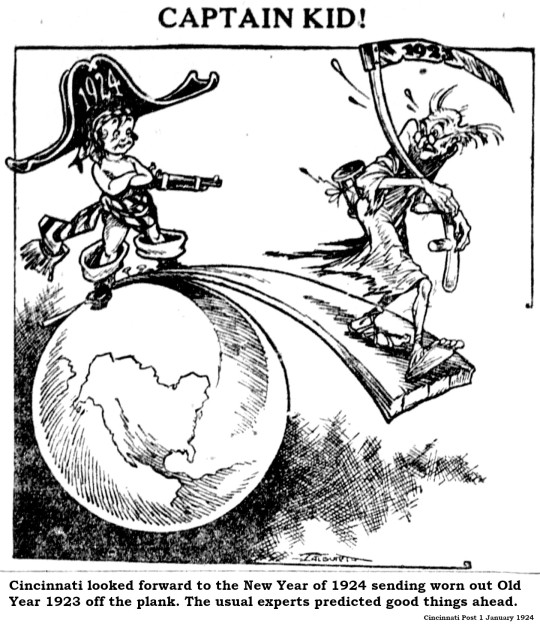
It has since become de rigueur for newspapers to roust boffins and mavens from their New Year’s Day hangovers to forecast major developments of the ensuing months. Cincinnati reporters had a field day with predictions for 1924 and the following decade because all the greatest minds in America, nearly the entire membership of the American Association for the Advancement of Science, had convened in the Queen City for its annual convention.
Dr. Edward P. Warner addressed the punditry with grave fears about the state of aviation in the United States. Although America excelled on adopting air transport for the delivery of mail, European nations were far exceeding the United States in passenger travel. Dr. Warner attributed this to Europe’s creation of national airlines, while our country allowed private corporations to dither away opportunities in petty squabbles.
Moses B. Cotsworth of the International Fixed Calendar League, told the AAAS that, by 1928, every new year henceforth would begin on a Sunday. Cotsworth’s league proposed a simplified calendar of 13 months, each containing 28 days, each month starting on a Sunday and ending on a Saturday, creating a fixed year of 364 days. The thirteenth month, named Sol, would be placed between June and July. The additional day would be a holiday named “Year Day.” In leap years, the extra day would fall after Saturday, June 28, as an anomalous addition before Sunday, Sol 1.
We are still waiting. Perhaps wiser minds realized that Cotsworth’s calendar would have created a Friday the Thirteenths during every one of those thirteen months.
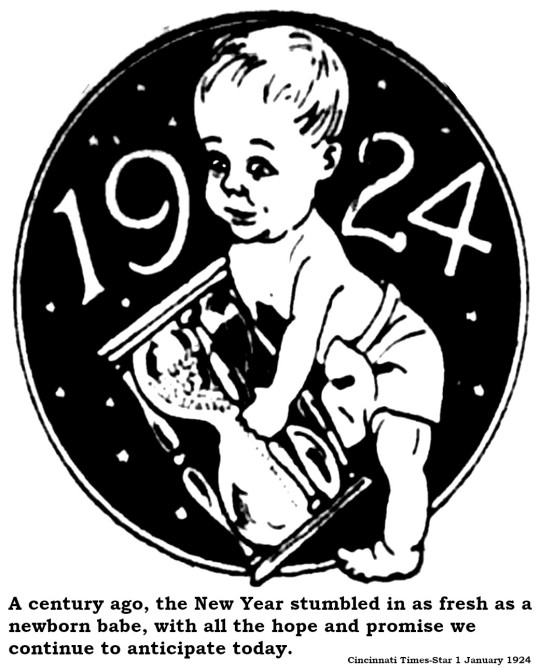
5 notes
·
View notes
Photo





My Salinger Year [aka My New York Year] (Philippe Falardeau, 2020)
#My Salinger Year#drama film#Joanna Rakoff#Douglas Booth#Philippe Falardeau#Colm Feore#memoir#love story#books#Sigourney Weaver#Seána Kerslake#New York City#computer#American literature#J. D. Salinger#Margaret Qualley#culture#Hapworth 16 1924#manuscript#girlfriend#typewriter#NYC#Brían F. O'Byrne#The New Yorker#literary agency#emotions#cinema of Canada#cinema of Ireland#technophobia#office
13 notes
·
View notes
Text


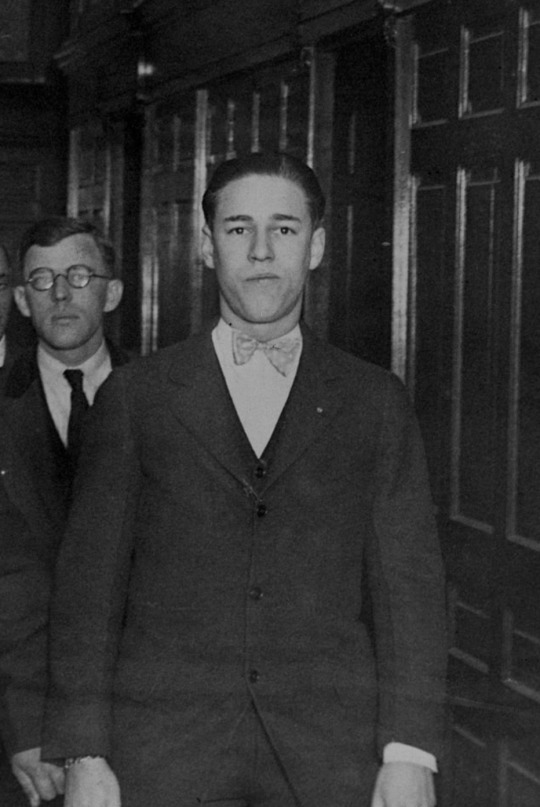
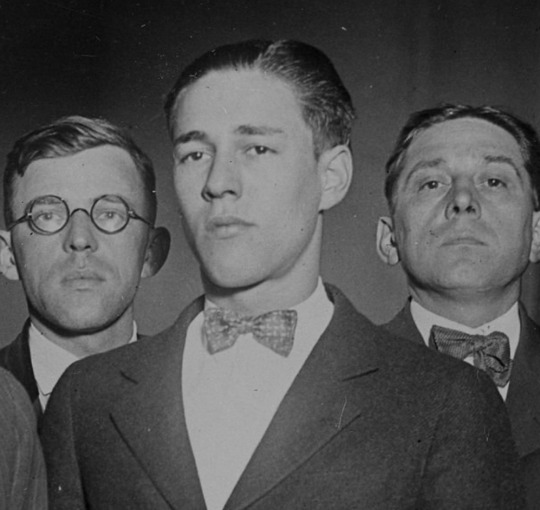
#Richard Loeb#leopold and loeb#1924#he was a pos but dammit he was hot#why was he so hot?#black and white photography#99 years ago
14 notes
·
View notes
Text
I bet pretentious weebs would throw up if they found out that, in the Japanese silent film performance I went to tonight, the subtitles called a child "Tetsu" instead of "Tecchan" like the performer doing the script and voices clearly said, because you lose so much nuance about the characters if you don't leave the honorifics on and ACTUALLY it's technically an incorrect translation because the words are different and a correct translation would actually just be Japanese subtitles and if people can't just deal with that then they're lazy
#pickle pontificates#if this sounds like I'm vagueposting about some very specific discourse that annoys me it's because that's exactly what it is#this post is satire#anyway. genuinely and non satirically I had a great time. it was a cool experience and the performers and musicians were SUPER talented#I'm so glad I went! the professors we went with snagged the performers afterward and we got to take a picture with them#holy crap. fund the arts. preserve things both physically and digitally or we lose our sense of connection with the past#and these films were only like a hundred years old. imagine how much more history we'll never see moving in front of us#but was nevertheless incredibly similar to our present#it's so magical to hear a Chicago audience in 2024 laugh at a joke that a Japanese audience in 1924 laughed at a hundred years ago
2 notes
·
View notes
Photo

Screenland, May 1924
#billie dove#magazine: screenland#year: 1924#decade: 1920s#type: studio and publicity photos#photographer: alfred cheney johnson#sc vol. 9 no. 2
48 notes
·
View notes
Photo

Happy Belated Birthday To Gorgeous American Silent Actress
Georgia Hale (Born 25th June 1900)
#georgia hale#birthday girl#born 25th june 1900#gorgeous american silent actress#best remembered for her role in gold rush (1925)#only 17 acting credits#years active 1924-31#b/w photography#silent hollywood
54 notes
·
View notes
Text

26 notes
·
View notes
Text
HORRIFYING! PSIKE MAY HAVE BEEN 16 WHEN MARTHA DIED. THE MIRRORS .
#Grave's Digs#TabbyKat Rambles#So I wanted to check how old I made Martha when she died#It was 44. So then I added that to her birth year (1924)#The year would be 1964#Then subtracted it from psikes birth year#Ne would be 15 around 1964..#But#Seeing as I never decided her death date..#It /could/ be possible that Martha was 44 while psike was 16#Ignore her current bday rn ok ignore it rn. I got smth brewing
2 notes
·
View notes

